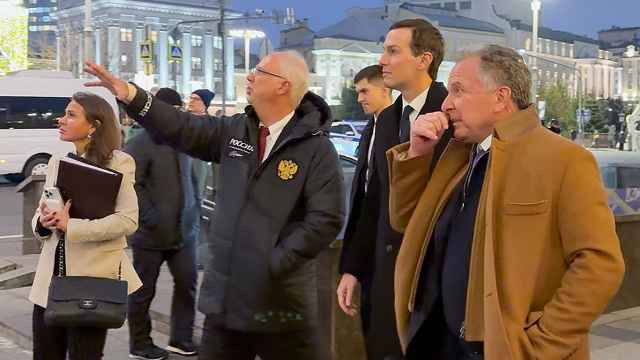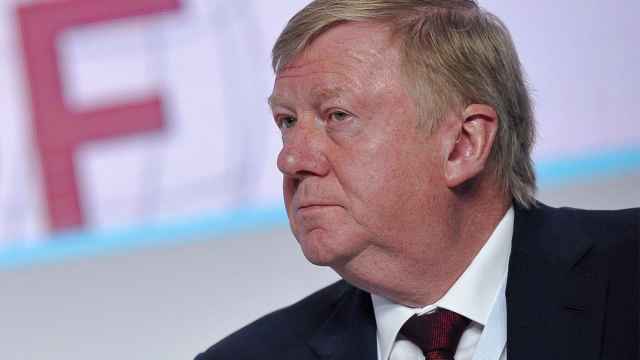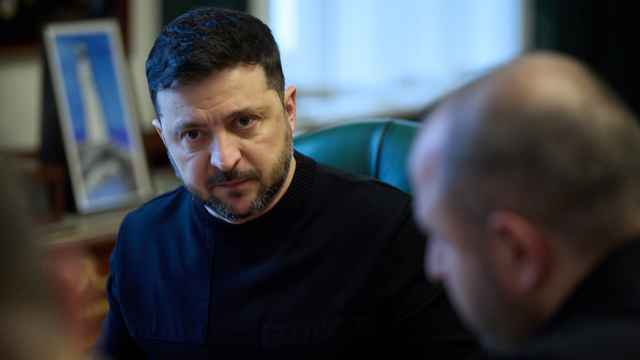The domestic economy could shrink 1.5 percent next year if global oil demand falls sharply following a recession in Europe or the United States, the World Bank said Thursday.
The bank suggested three possible scenarios for the country's economic development in 2011 and 2012, with the severe shock scenario being the worst-possible case.
"The risks to the global economy are growing and so are the risks to Russia's growth," the World Bank said in a report. "The sharply rising uncertainties in the global economy call for thinking through alternative scenarios and their implications for the Russian economy," the report said.
Under the worst-case scenario, contraction in global demand is likely to result in oil prices sliding to $60 a barrel next year and Russia entering a recession, with unemployment rising to 7.5 percent and the budget deficit reaching about 5.3 percent of gross domestic product.
Such a situation "would clearly require measures to correct the budget" to finance the gap, said Zeljko Bogetic, the World Bank's chief economist for Russia.
This is, however, the least-probable scenario, since oil prices are likely to show a gradual decrease, he told a news conference in the World Bank's Moscow office Thursday.
"A new recession is still unlikely. … We expect a slow decrease of oil prices, which will exert a certain pressure on the budget," Bogetic said.
In the base case, the most-likely scenario, the country's economy will grow 4 percent growth this year — below the Economic Development Ministry's forecast of 4.1 percent — and by 3.8 percent in 2012.
The ministry expects the country's economy to grow 3.7 percent next year.
Although the major risks for Russia lie outside the country and are linked to the euro-zone debt crisis and the slowdown of the U.S. economy, "the country's short-term economic situation remains favorable because of high oil prices with an almost balanced budget this year," the World Bank said.
Under its base-case scenario, oil prices are expected to be $105 a barrel this year and fall slightly to $95 next year.
The country's budget deficit is projected to be 0.2 percent of GDP this year and reach 1.6 percent of GDP in 2012, while the unemployment rate will be 6.6 percent and 6.3 percent, respectively.
The Word Bank's budget deficit forecast for next year is almost in line with that of the Finance Ministry, which is aiming for a balanced budget this year, while the forecast for next year's deficit is 1.5 percent of GDP.
But Prime Minister Vladimir Putin said earlier this week that attaining a balanced budget in 2012 is key for the government.
"The estimates for next year are preliminary. I believe that the positive dynamic in the economy will allow these figures to be adjusted in the future to attain a balanced budget," he said at the government's budget commission meeting.
Despite the favorable economic situation, Russia is likely to face "middle-term and long-term challenges" because of higher budget expenditures, Bogetic said.
Russia's "significant downside risks are associated with global demand and highly volatile oil prices, and new expenditure pressures from the planned modernization of the army, spending on infrastructure and additional social spending, especially during the election period," the World Bank warned in the report.
The government plans to spend 1.8 trillion rubles ($59 billion) on defense next year, with the figure growing to 2.8 trillion in 2014, according to the projected federal budget on the Finance Ministry web site.
Social spending will grow from 3.8 trillion rubles in 2012 to 4.1 trillion rubles in 2014.
The government plans to consider the final version of the budget in the next several days and send it to the State Duma by Oct. 1.
The World Bank also presented a moderate shock scenario, involving oil prices of $100 a barrel this year and $80 percent a barrel in 2012.
This could result in Russia's economy showing modest growth of 3.5 percent and 2 percent in 2011 and 2012, respectively, with unemployment reaching 7 percent next year.
The budget deficit would stand at 0.5 percent this year, expanding to 3.1 percent in 2012.
"It's a significant worsening of the budget situation, but, according to our estimates, it would be a working situation, because it would be possible to finance such deficit," Bogetic said.
A possible option for financing the 2012 budget gap would be using money from the Reserve Fund and domestic borrowing, he said.
Meanwhile, even in the worst-case scenario, growth in domestic consumption is expected to support the country's economy, Bogetic said.
"We expect consumption growth to remain positive, even in the case of a recession," the World Bank said in the report.
The World Bank's forecast followed more optimistic projections by the International Monetary Fund, which expects Russia's economy to grow 4.8 percent this year, slowing to 4.5 percent in 2012.
Russia is facing growing risks amid the uncertainty on the global market, but the country could benefit from high oil prices, the IMF said Wednesday.
"High commodity prices create a window of opportunity to embark on bold and decisive reforms to strengthen growth prospects over the medium term," it said in a report.
The IMF called for the government to focus on reducing fiscal vulnerability, lowering inflation, strengthening the banking system and improving the investment climate, saying the country has a good chance to "introduce the reforms to support stronger growth" in the next 10 years.
A Message from The Moscow Times:
Dear readers,
We are facing unprecedented challenges. Russia's Prosecutor General's Office has designated The Moscow Times as an "undesirable" organization, criminalizing our work and putting our staff at risk of prosecution. This follows our earlier unjust labeling as a "foreign agent."
These actions are direct attempts to silence independent journalism in Russia. The authorities claim our work "discredits the decisions of the Russian leadership." We see things differently: we strive to provide accurate, unbiased reporting on Russia.
We, the journalists of The Moscow Times, refuse to be silenced. But to continue our work, we need your help.
Your support, no matter how small, makes a world of difference. If you can, please support us monthly starting from just $2. It's quick to set up, and every contribution makes a significant impact.
By supporting The Moscow Times, you're defending open, independent journalism in the face of repression. Thank you for standing with us.
Remind me later.





